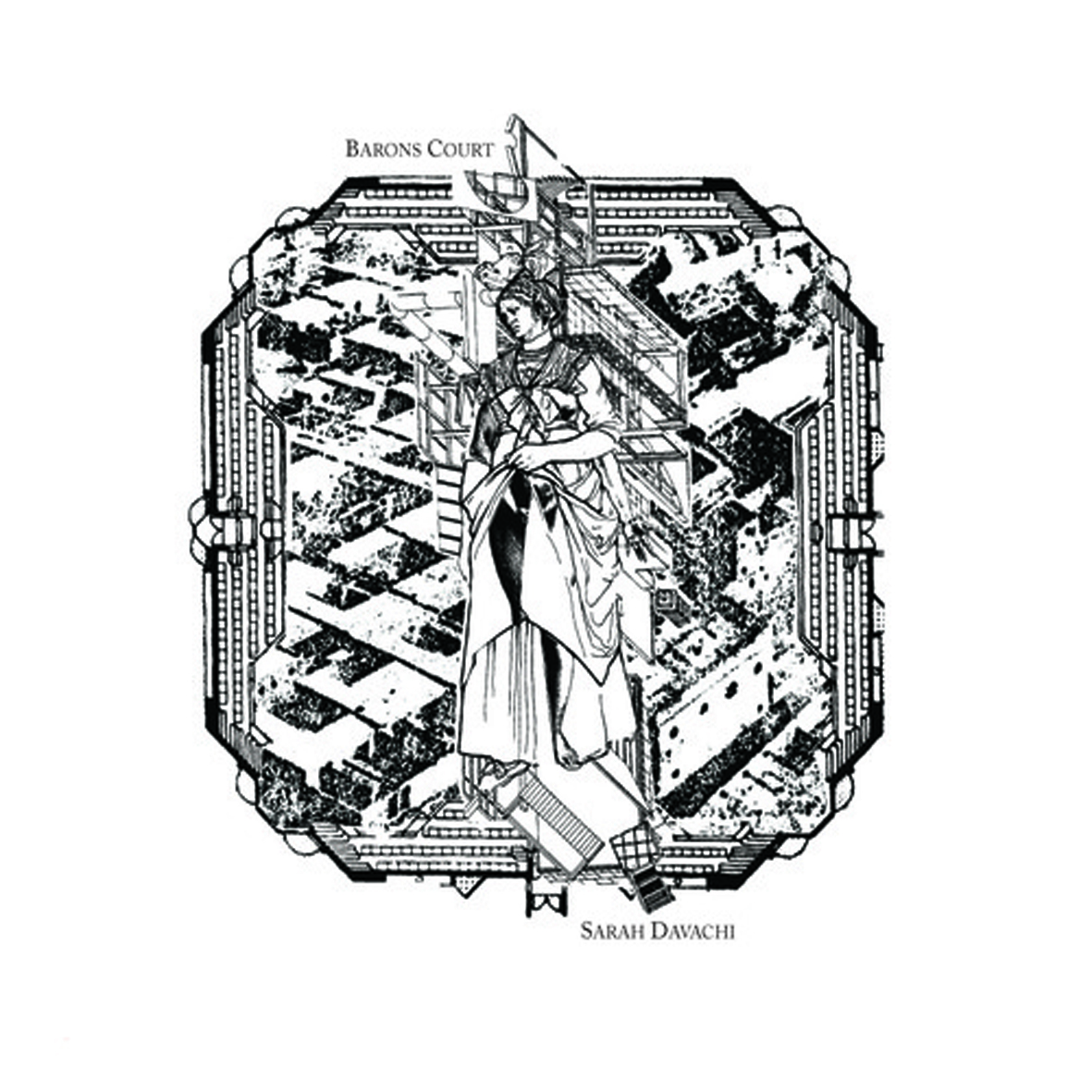 Sarah Davachi is a young Vancouver-based artist who shares that passion for old analog synthesizers that is so rampant these days.  Stylistically, however, she is an old-style composer that shares much more common ground with minimalist drone royalty like Eliane Radigue and Phill Niblock than she does with the current pack of squiggling, blurting, and entropy-minded synth revivalists.  Also, she seems to have a fine intuitive grasp on the limits of such gear and ingeniously employs strings, flutes, and a harmonium to elevate her pieces into something better and more distinctly her own.  More importantly, this is exactly the sort of drone that I love and Davachi manages to do it better than just about anybody.  This is already a lock for one of my favorite albums of 2015.
Sarah Davachi is a young Vancouver-based artist who shares that passion for old analog synthesizers that is so rampant these days.  Stylistically, however, she is an old-style composer that shares much more common ground with minimalist drone royalty like Eliane Radigue and Phill Niblock than she does with the current pack of squiggling, blurting, and entropy-minded synth revivalists.  Also, she seems to have a fine intuitive grasp on the limits of such gear and ingeniously employs strings, flutes, and a harmonium to elevate her pieces into something better and more distinctly her own.  More importantly, this is exactly the sort of drone that I love and Davachi manages to do it better than just about anybody.  This is already a lock for one of my favorite albums of 2015.
I never expected to turn into someone who has strong opinions and passions regarding minimal drone, but it seems as though I somehow wound up that way despite my best efforts.  While there are plenty drone albums that I enjoy, there are only a handful that absolutely delight me.  Barons Court happily falls into that rare latter category, though it is difficult to articulate quite why, as extremely minimal music succeeds or fails almost entirely in its execution.  Literally anyone can let a single note gently oscillate for ten minutes, but it takes a particular strain of genius (as well as superhuman patience and near-surgical attention to detail) to transform that into something mesmerizing.  For most of Barons Court, Davachi does just that.
Notably, Sarah is not quite as "pure" or aggressively minimal as some of her kindred spirits: while these pieces are certainly built upon the expected bed of quavering analog synthesizer, Davachi often allows her drones to gradually cohere into a lush, warm, and languorously undulating chord.  In fact, that is essentially all that happens in the 8-minute "Wood Green" and it is wonderful.  In the other pieces, however, she twists that formula in a variety of compelling ways.  "Tiergarten," for example, follows roughly a similar trajectory, but darkens the waters with subtly dissonant harmonies and uneasy oscillations.  The opening "Heliotrope," on the other hand, is dissonant right out of the gate with a churning, uncomfortable swirl of bowed cello harmonies.  Then, around the halfway point, Davachi transforms that subtle menace into deeply uneasy and unearthly beauty with the addition of some very ghostly flutes that recall Natural Snow Buildings at their best.  The album's centerpiece, the 13-minute "Guildford," achieves a similarly haunting majesty, replacing those demonic flutes with spectral, floating synth swells and hypnotic harmonium drones.  Then gradually, the darkness ebbs away a bit to make way for a more enigmatic mood of timeless, ritualistic-sounding beauty.  It is an absolutely stellar piece, as is "Heliotrope."
The final piece, "Ruislip," is arguably something of a wobble that stands in the way of my proclaiming Barons Court to be an absolutely perfect album.  However, if it is a misstep, it is admittedly a very subjective one: in most respects, it is a lot like everything great that preceded it, but the timbre of the synthesizer just has that annoying, artificial "’70s science documentary" edge to it that I cannot stand.  Eventually that edge becomes dulled enough to enjoy though, as the piece gradually coheres into a masterfully warped and hallucinatory crescendo.  I guess I remain somewhat on the fence about that one, though I will note that I vastly prefer the dubious gamble of "Ruislip" to the edgeless, blissed-out drone soup that most artists churn out these days. As far as everything else is concerned, however, Barons Court is an absolute monster of a debut: Davachi is a strong composer, an excellent stylist, and a remarkably assured and inventive new artist.  I love this.
 
Read More

